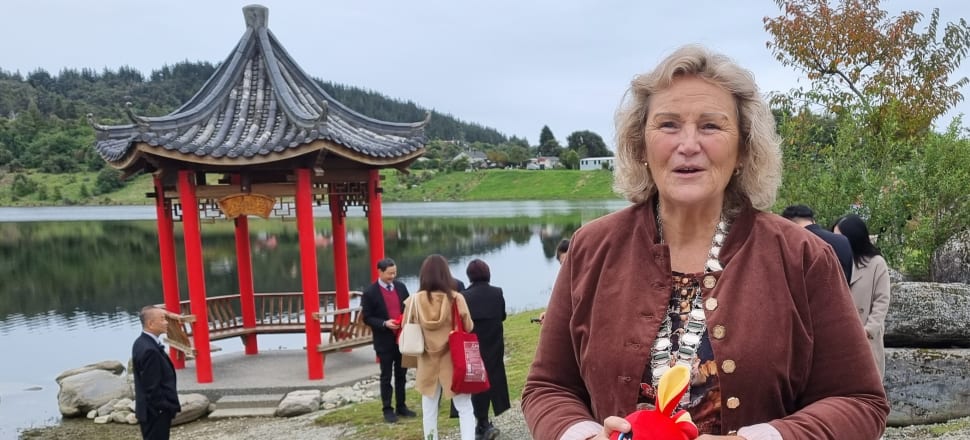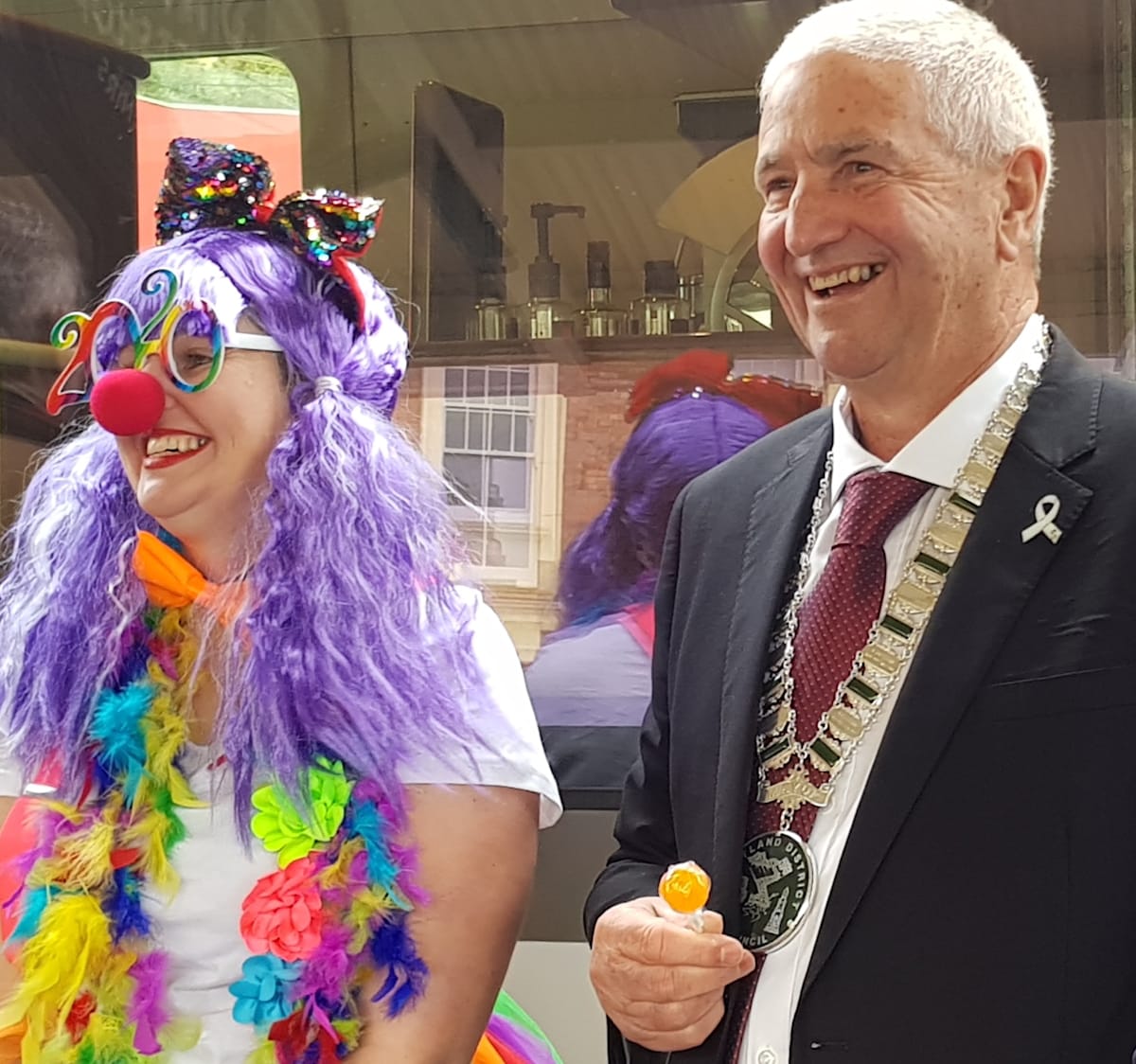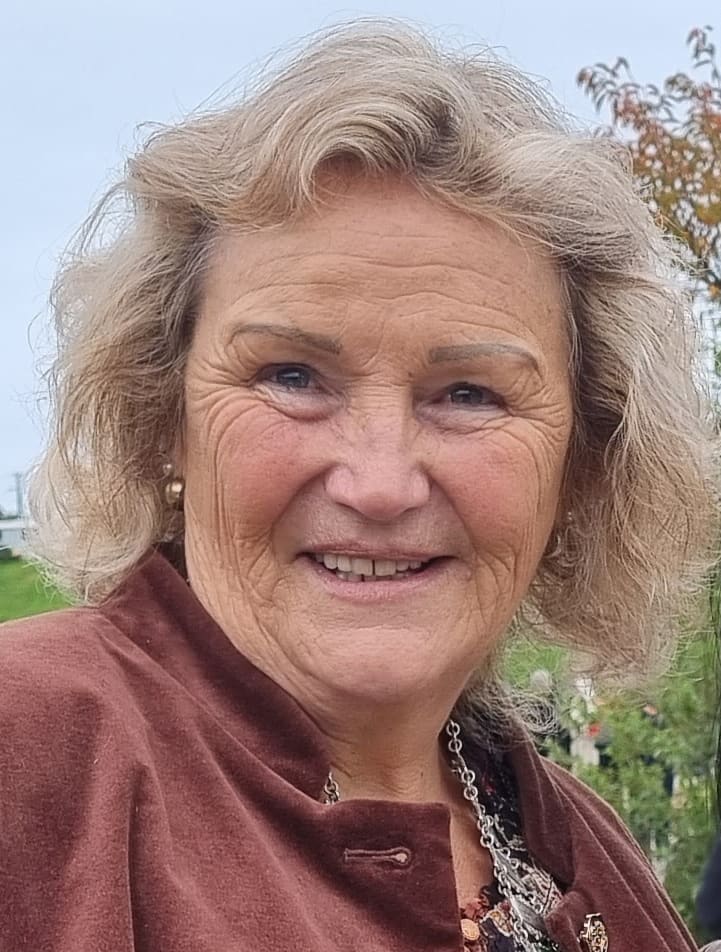
If Westland politics was once the province of oafish blokes who paid the niceties no heed, things have changed since last year’s local elections
New Westland Mayor Helen Lash has never been the sort to shrink from a challenge.
The 64-year-old has in her day run a farm, raised four sons while her husband was at sea for weeks on end, faced down various bullies of the good ol’ boy breed and built a vineyard from scratch after a failed attempt at retirement.
She’s also been a secretary, a school-board trustee, a community-development worker and a rugby-club secretary and she cut her local-government teeth as a Westland district councillor for three years.
It’s the sort of CV and skill-set that could be held up as the ideal for aspiring mayors.
But last October she never expected to win.
“The other candidates were saying they’d do this and that and I just couldn’t … it felt presumptuous and when the phone call came to say I’d won I burst into tears.
“But of joy - I was just overwhelmed.”
The unassuming Lash has taken the reins of a council that’s been pilloried for poor governance under former mayor Bruce Smith, a less-than-stellar businessman who was given to self-promoting videos and tirades against the Ardern government.
The council was censured by the Auditor General in 2019 after Smith and councillor Durham Havill built a $1.3 million stop bank at Franz Josef without consent or engineering advice.
There were national headlines - and some hilarity - when the Serious Fraud Office revealed council assets manager Vivek Goel had been taking bribes and awarded a contract for a sewerage project to a company fronted by a mate’s daughter, a South Auckland cake decorator.
Goel was jailed last month for three years and eight months and the council was monitored for a time by a Crown oversight group.
There’d also been complaints of bullying and oafish behaviour by Smith and Havill.

Lash was on the receiving end of it more than once and was sacked as deputy mayor by Smith for criticising the way he and others spoke to staff and other councillors.
“He reinstated me after a week.
"I’d challenged them over the Franz flood wall and said they were putting us at risk because it wasn’t properly engineered.”
Bullies and animal health
It’s not the first time the Westland mayor has faced bullying by older men.
“One of the things I’m most proud of besides my family is what I managed to get done when I was chair of the West Coast Animal Health committee in the 1990s.
“We drove the Animal Health Board funding up from $2.5 million to about $12 million and we went from 257 TB-infected herds to just 47.
“But it was a hell of a battle - they wanted to put the Coast in the too-hard basket.”
Lash was the first female regional chair the board had encountered and her refusal to back down infuriated some of her male counterparts, she says.
“I had one of those guys come up to me, bang his fist on the table in front of me and he was, ‘You f…ing bitch’ this and that, and the chairman just sat there and did nothing because that guy was saying what the chair couldn’t.
“But I wasn’t taking things lying down and I ruffled a few feathers because of it. That was my intro to the old-boy network and how they throw their toys out of the cot when they don’t get what they want.”
There will be no toy-throwing on Lash’s watch, it would seem. Or chest-poking.
And the time-honoured West Coast mayoral tradition of saying rude things about the dastardly government also appears to be on the way out.
“A lot of the way of the past was to thump the table and abuse Wellington and call them clowns, but I think those days have sort of gone, thankfully.
“The mayors and chairs we have now - Jamie Cleine in Buller, Tania Gibson in Greymouth, Peter Haddock at the regional council and me - we’re of the same mindset: you don’t bite the hand that feeds you.”
Which is not to say they’ll be giving up without a fight on such issues as Three Waters, Lash says.
“Tania and I don’t support Three Waters and the government is well aware of that but there are ways of challenging it respectfully.
“We can sit down and discuss anything else and there are no barriers or pushback because we’ve abused the living daylights out of them over one issue.”
The Westland mayor has recently had exactly that sort of discussion with Civil Defence Minister Kieran McNulty, she says.
“The civil defence system we have now - I don’t like it.
“It’s top-heavy. There are layers of bureaucracy and senior management that have no idea.
“They sit in offices writing crazy plans and spending money and when disaster hits, surprise, the plan doesn’t fit.”
Auckland’s recent experience is a classic example, Lash says.
“I get quite cross with civil defence because I don’t agree with the structure.
“You have to build it from the ground up, starting with engaging each community, because they’re the ones that have to cope and make it through and pull together.”
Faulty thinking
That is especially true of the West Coast, Lash says, with its many isolated communities, high rainfall, regular floods and the always-imminent threat of the next Alpine Fault rupture, now well overdue.
“We need to encourage self-reliance.
“When the Alpine Fault goes the West Coast could be cut off from the rest of the country for eight weeks, not two. It’s entirely possible the first help we get will come from Australia via its navy.”

People assume the many helicopters on the Coast would come to the rescue, ferrying supplies and getting tourists out, Lash says.
“But most private operators don’t tie their rotor blades down and in a major quake they’re going to move or be fractured and they’ll be unusable till they’ve been checked by an engineer.
“So the concept that we have all these choppers and they’ll be able to buzz around instantly checking on people is wrong. So where’s Plan B?”
Yet another review of civil defence is not the answer, Lash says.
“They just need to throw out what they’ve got and talk to people at ground level and build something that’s actually going to work.
“If you look at what’s happened up north, there are still communities that have had no help, no visit, nothing from anybody and that’s not on.”
As long as civil defence is run as a corporate-style hierarchy it will fail, Lash says.
Six months into her job how is the mission of doing right by the people of Westland - decently and in order - going?
“If you’d asked me at three months in I was fizzing.
“But the honeymoon’s over. We’re getting down now to the serious side of the job and we have a lot on our plate,” Lash says.
She worries about rivers - and climate change.
“Franz Josef, especially. We have protection work funded for the north side, but it frustrates the hell out of me that we have all these farmers on the south side who have no idea what their future looks like and we can’t get answers for them.”
The government initially promised funding for both sides of the wild Waiho (Waiau) River at Franz but has so far approved funds for the north bank only, to protect the town.
“These poor buggers down there don’t know whether to rebuild fences when they’re knocked over.
“They don’t know if they should get someone in to get rid of the silt after a flood - and the next flood could be the one that takes them out for good.”
The river-protection work will buy Franz Josef - sitting right on the Alpine Fault - about another 20 years to decide how to manage the multiple hazards that threaten its future.
A Tonkin and Tayor report commissioned several years ago by the West Coast Regional Council suggested moving the town northwards as one option.
“We’ve done the homework. But how do you move a town?
“I don’t want to see us wait until year 18 before we start thinking about it,” Lash says.
Hospital pass
She also worries about rates.
The council’s proposing rate increases of up to 27 percent this winter, in catch-up mode after the previous council deliberately kept them down.
“Two years ago the council had a nil rates rise - it said it was because of Covid but it was a political stunt. Then it tried to flatten it down again last year so we’ve been given a real hospital pass.”
It would be negligent to continue down that path, Lash says.
“We either put our heads in the sand and do what they did and then every poor bugger’s got to pay 27 percent next year.
“So what do you do? I know times are hard and by god we’re well aware of that and we’ve been through the budgets with a fine-tooth comb.
“But what we won’t do is compromise on the level of service to ratepayers.”
And recent changes to the Three Waters scheme have created consternation for her council over planning for Hokitika’s long-awaited new sewage treatment plant.
“It’s mucked us up a bit because we don’t know whether we will fund it or it’s co-funded or what.
“The government doesn’t know what it’s doing with it so we just have to move on like it’s us doing it and they will take it off our hands at some point in the future.”
She says it’s fortunate the council hasn’t spent any of the second tranche of “better-off” funding offered by the government as a Three Waters sweetener.
“We only found out it had been scrapped as a sort of aside in a Zoom call with the minister just before he announced the changes.
“So you have councils around the country that have forward-spent their share of that $1.5 billion building libraries and so on and now it’s gone.”
Westland was going to use the money to get community halls around the region up to standard as civil-defence centres and has had to pull back on some projects, Lash says.
Unfinished business
But one project that will go ahead is an improved stop bank to protect Hokitika’s Westland Milk factory from a dangerously close channel in the Hokitika River.
The Chinese-owned company is about to spend $70 million on a lacto-ferrin plant at the Hokitika facility following on from a $40 million injection two years ago to double butter production.
Protecting that asset from potential disaster was a no-brainer, Lash says.
“We were going to extend our seawall but Westland Milk is a much higher priority.
“If the plant flooded it would pull the rug out from under the Westland economy.”
The investment is a vote of confidence in the region and reassuring for locals who feared the company would move the Hokitika operation to Canterbury, Lash says.
It’s also a reminder, perhaps, that once-troubled organisations can move on to bigger and better things.
“The council did go through horrendous times and some say ‘why would you go back when you were treated like that last time?’
“And I say because the people of Westland deserve better and to see things done properly.
“I had unfinished business.”
Made with the support of the Public Interest Journalism Fund








